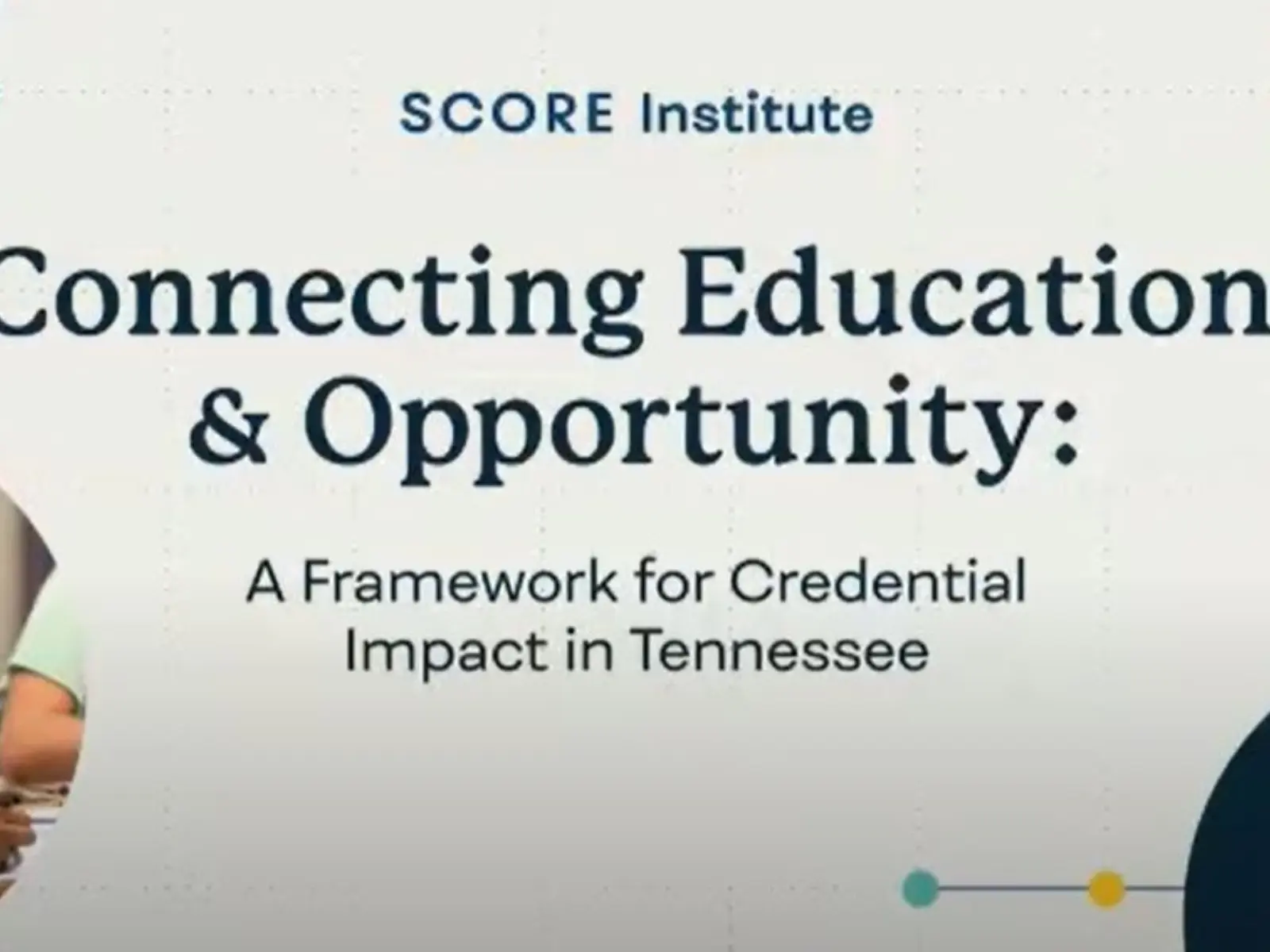Five years after COVID arrived, American life appears to have returned to normal. Businesses bustle with customers, workers commute to offices, and stadiums fill with cheering crowds. Yet beneath this surface recovery lies a persistent crisis threatening our nation’s future: children aren’t showing up to school.
During the pandemic, chronic absenteeism at American schools nearly doubled. All these years later, it still hasn’t returned to the pre-COVID baseline. Alarmingly low levels of attendance have already taken a serious toll on learning outcomes, with a study linking chronic absenteeism to lower reading scores. And the latest data from The Nation’s Report Card found that math and reading skills have yet to rebound to pre-pandemic levels.
The stakes couldn’t be higher. When young children miss school repeatedly, they form poor attendance habits and fail to develop crucial attachments to learning — patterns that can derail their entire educational journey.
Researchers at the University of Chicago are testing a simple solution that has already yielded promising results in pilot tests: sending text message reminders to parents encouraging them to bring their pre‑K and kindergarten students to school.
Arnold Ventures proudly supports this groundbreaking research through our Strengthening Evidence initiative, which invests in randomized controlled trials that study promising policy interventions to America’s pressing policy challenges. Through this work, we hope to give lawmakers the evidence they need to enact the most effective solutions.
This project fills a glaring gap in the current research.
“Relatively few studies have aimed to understand chronic absenteeism in the early years, when habits of attendance at school and attachment to the learning process are formed,” said Dr. Ariel Kalil, a lead researcher on the study.
Partnering with Oklahoma City Public Schools, UChicago researchers are testing the efficacy of the Show Up to Grow Up initiative, particularly among low-income and Spanish-speaking families. 2,400 parents or guardians with children in either preschool or kindergarten will receive three text reminders a week from the school. Beyond observing changes in absenteeism, the study will also assess whether the program improves learning outcomes, such as student test scores.
The messages aren’t generic reminders — they’re strategically crafted to change behavior. Each text addresses specific barriers to attendance: misunderstandings about early education’s value, student anxiety, and other known factors driving absenteeism.
What makes this intervention particularly promising is its practicality. Unlike resource-intensive approaches such as teacher mentoring programs — which have produced inconsistent results — text messaging uses the platforms that schools already employ to communicate with parents.
“We developed this intervention from the outset with an eye toward scalability,” said Dr. Kalil, who directs the Center for Human Potential and Public Policy and co-directs the Behavioral Insights and Parenting Lab. “We hope to convince policymakers and practitioners that a behaviorally informed design that responds to the beliefs and contextual factors guiding parents’ decisions can be a more effective and cost-effective approach than the status quo.”
If the program is found to be effective, the results will provide crucial guidance for lawmakers seeking evidence-based policies to reduce absenteeism and improve educational outcomes. Solving the attendance crisis early pays enormous dividends: every dollar invested in preschool generates more than five dollars in after-tax benefits for families.
“Every study we support helps draw the blueprint for an effective solution to our nation’s most pressing problems,” said Justin Milner, Arnold Ventures’ executive vice president of evidence and evaluation. “Chronic absenteeism has devastating long-run impacts on the students, their families, and ultimately our society as a whole. With this study, we’re hoping to provide policymakers an actionable step to get our youngest learners back on track.”
More Solutions We’re Studying
As part of AV’s Strengthening Evidence program, we’re also supporting several additional research initiatives under our core areas of focus.
K‑12 Education
Researchers at the University of Chicago are also digging into twenty years’ worth of data to determine if Los Angeles magnet schools improve outcomes for their students. Johns Hopkins University is evaluating the effectiveness of Air Reading, a virtual tutoring program, to see if it improves reading achievement in two Texas school districts. And researchers at Stanford University will conduct two randomized controlled trials of different tutoring programs. One study will examine the impact of Hoot Reading, a teacher-led virtual tutoring intervention, on students’ reading scores in Kansas City Public Schools. The other will evaluate whether MathCorps, an in-person tutoring intervention, improves math scores more than 15 schools across Minnesota and Georgia.
Higher Education
At the University of Virginia, researchers are assessing the labor market outcomes of workers who, in high school, received college coaching from the program College Possible Texas. The University of California, Davis, is testing whether making information about financial aid eligibility more accessible can improve outcomes for community college students.
Infrastructure
Another study at the University of Chicago is asking if providing real-time information on residential water consumption and pricing to customers could encourage water conservation efforts — and testing that hypothesis in Westminster, Colorado.
All this research aligns perfectly with the Arnold Ventures mission: equipping politicians to embrace the evidence, implement smart policies, and make life better for their constituents.
For more information on current funding opportunities, please see the following requests for proposals (RFPs): Strengthening Evidence and Building Evidence. Both RFPs aim to fund rigorous, causal research to expand and bolster the evidence base for promising social policies and programs. Letters of interest for both RFPs are due by Friday, June 13, 2025.
Funding for causal research related to the criminal justice system is offered through a separate RFP with a rolling deadline.











